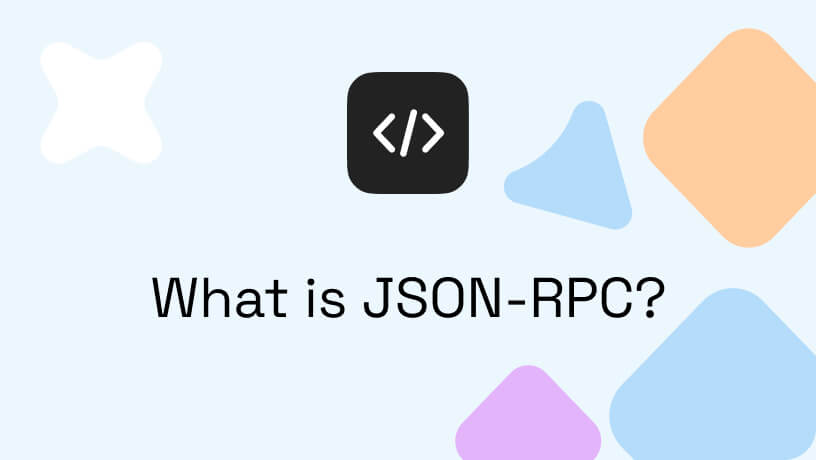When it comes to web development and API connection, simplicity and efficiency are essential. Let me introduce you to JSON-RPC, a simple and lightweight protocol that uses JavaScript Object Notation (JSON) as the data format for remote procedure calls (RPC). We will explore JSON-RPC’s definition, key characteristics, and reasons for being a preferred option among developers in this blog post.
What is JSON-RPC?
JSON-RPC is a remote procedure call protocol encoded in JSON. It enables communication between a client and a server over various transport layers, such as HTTP or WebSocket. JSON-RPC operates by sending a request from the client to the server, which then processes the request and sends back a response. This exchange is typically synchronous, meaning that the client waits for a response before proceeding.
Core Features of JSON-RPC:
- Simplicity: JSON-RPC is designed with simplicity in mind. Its syntax is minimalistic, making it easy to understand and implement. Requests and responses are represented as JSON objects, consisting of parameters and method names.
- Lightweight: Compared to other RPC protocols like SOAP (Simple Object Access Protocol), JSON-RPC is lightweight. This simplicity results in reduced overhead, making it suitable for resource-constrained environments and high-performance applications.
- Transport Agnostic: JSON-RPC can be used over various transport protocols, including HTTP, WebSocket, and TCP/IP. This flexibility allows developers to choose the most appropriate transport layer for their specific use case.
- Error Handling: JSON-RPC provides a standardized way to handle errors. In the event of an error, the server responds with an error object containing an error code and message. This ensures consistency in error handling across different JSON-RPC implementations.
- Batch Requests: JSON-RPC supports batch requests, allowing multiple RPC calls to be bundled into a single request. This can improve efficiency by reducing the number of round trips between the client and server, especially in scenarios involving multiple sequential calls.
- Versioning: JSON-RPC supports versioning, enabling backward compatibility with older clients or servers. By specifying the JSON-RPC version in the request, clients and servers can ensure compatibility and gracefully handle any differences in protocol implementations.
Why Choose JSON-RPC?
JSON-RPC’s simplicity, lightweight nature, and transport agnosticism make it an attractive choice for many developers. Whether you’re building a web application, a microservices architecture, or IoT devices, JSON-RPC provides a straightforward and efficient means of communication between client and server.
Additionally, JSON-RPC’s error handling and support for batch requests contribute to improved reliability and performance, further enhancing its appeal for real-world applications.
Conclusion
To sum it all up, JSON-RPC offers a pragmatic approach to remote procedure calls, balancing simplicity with versatility. Its minimalistic design and robust features make it a valuable tool in the developer’s toolbox, facilitating seamless communication between distributed systems in an increasingly interconnected world.

